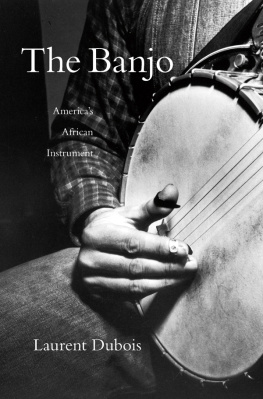The University of Chicago Press, Chicago 60637
The University of Chicago Press, Ltd., London
1978 by The University of Chicago
All rights reserved. Published 1978
Paperback edition 1980
Library of Congress Cataloging-in-Publication Data
Du Bois, William Edward Burghardt, 18681963.
W. E. B. Du Bois on sociology and the Black community.
(Heritage of sociology)
Bibliography: p.
Includes index.
1. Afro-AmericansSocial conditionsto 1964Collected works. I. Green, Dan S. II. Driver, Edwin D. III. Title.
E185.86.D845 301.45196073 78-770
ISBN 0-226-16760-7
ISBN-13: 978-0-226-16280-5 (ebook)

The paper used in this publication meets the minimum requirements of the American National Standard for Information SciencesPermanence of Paper for Printed Library Materials, ANSI Z39.48-1984.
The purpose of this volume is to make available to sociologists and other interested scholars a wide selection of the sociological writings of W.E.B. Du Bois. Special effort was made to include contributions which are out of print and very difficult to obtain. The selections which are included demonstrate Du Bois concentration on black Americans and black community life in the United States. This collection of Du Bois sociological writings is also of interest since it highlights Du Bois as an early American sociologist.
Throughout a lengthy and active life, W.E.B. Du Bois excelled in numerous occupations. Important above all, however, was his initial and, to him, most significant occupationsociologist. Du Bois embarked on a career as a sociologist prior to the turn of the century; his goal was to ameliorate the race problem in the United States through a careful, scientific, sociological analysis of black Americans.
From 1896 to 1910 Du Bois was an extremely productive sociologist. His credits include a major monograph on black urban life, numerous other studies, published and unpublished, on various aspects of black American life and culture. In 1897, following his research in Philadelphia, he joined the faculty at Atlanta University; his primary responsibilities were to teach sociology and to take charge of the newly created program of sociological studies on the American Negro. In 1910 he left Atlanta for a career as a journalist and propagandist. He was somewhat disheartened about abandoning his goal of ameliorating the race problem through scientific analysis but felt that he might be more effective toward this end in his new career. Most of Du Bois sociological writings were done between 1896 and 1910, although as this collection of his sociological writings shows, they continued after he left the academic world. In this sense, W.E.B. Du Bois remained a sociologist throughout his life.
We are deeply appreciative to the Ford Foundation for supporting the research on W.E.B. Du Bois which led to this volume. We would also like to express our gratitude to the many libraries and librarians who were helpful in supplying us with Du Bois writings and pertinent background material.
Credit is given to the original publisher of each of Du Bois essays at the beginning of each chapter. We are grateful for their generous permission to reprint them in this volume.
DAN S. GREEN and EDWIN D. DRIVER
I
William Edward Burghardt (W.E.B.) Du Bois engraved his name in the annals of American history during a lifetime that spanned ninety-five years, from shortly before the Emancipation Proclamation to the eve of the 1963 civil rights protest demonstration in Washington, D.C. During a life filled with creativity and controversy, Du Bois had a varied occupational history; he was a historian, editor, writer, educator, civil rights activist, propagandist, and sociologist. Known primarily for his propagandistic activities and leadership on behalf of his race, Du Bois began his career as an empirical sociologist committed to the sociological study of the condition and problems of black Americans.
Du Bois was born in Great Barrington, Massachusetts, in 1868, shortly after the legal emancipation of enslaved black Americans. He was the only child born to Alfred and Mary Burghardt Du Bois. He later, partly humorously, remarked that he was born with a flood of Negro blood, a strain of French, a bit of Dutch, but thank God! no Anglo-Saxon. Although from a poor family, he recalled that even with his brown face and frizzled hair, he was accepted by his peers and was, at times, even a leader among the town gang of boys. His color did not seem to interfere with his early social life. Generally, his childhood was idyllic in the small New England community where the color line was not sharply drawn, and social class and town roots seemed to be more important than skin color. The youngster grew up adhering to the local Protestant, Yankee values; he later wrote that he was taught to cordially despise the poor Irish and South Germans who worked in the local mills.
As he grew up, although still generally socially accepted, he began to realize that he was different from the other children. First, he was aware of an intellectual difference that allowed him to excel in his school work and to recite in a manner which he referred to as a happy, almost taunting glibness. He also slowly began to become cognizant that some people considered his color a misfortune or even a crime. This realization brought days of secret tears, but it also compelled him to try harder and to perform better.
His competitiveness and perseverance are indicative of the Yankee heritage with which he was thoroughly indoctrinated. He learned to guard his emotions, to be sparing in his daily greetings with others, and generally to be restrained in his social interaction. Most of his behavioral patterns were thoroughly New England. In retrospect Du Bois noted that, later on, Southern Negroes were troubled by his reticence and his reluctance to greet them casually and warmly on the streets. His aloofness and coldness has been noted by others, and he has been criticized for being unable to identify or appear comfortable with common men. Though this aloofness was in part due to his New England social heritage, some was undoubtedly engendered by his race, and some by his unusually keen intellect. Du Bois was by no means a common man.
Will Du Bois, as he was known as a youth, was the only black student in his graduating high school class. He took a standard college preparatory course which he completed with high honors. One racial incident occurred during this time, when the students proudly exchanged visiting cards. A girl, a newcomer to the community, refused his card. It occurred to him that her refusal was based on his color.
By this time Du Bois had already demonstrated a unique talent for writing. He had written for the New York Globe and as a local agent had sent weekly letters to the New York Age, both black newspapers. He was also the Great Barrington correspondent for the Springfield, Massachusetts, Republican. Even at this early age, his writing frequently tended toward social criticism.
When Du Bois graduated from high school in 1884, he hoped to continue his education at Harvard. His mother died the same year, and without either financial resources or a relative who could assume the costs of a college education, he could not then attend Harvard. However, his high school principal and several local clergymen were able to offer the talented graduate a scholarship to Fisk University, a school for black students which was affiliated with the Congregational church. Although disappointed that he was not going to Harvard, Du Bois was pleased to have the opportunity of continuing his education and also of interacting with blacks.


 The paper used in this publication meets the minimum requirements of the American National Standard for Information SciencesPermanence of Paper for Printed Library Materials, ANSI Z39.48-1984.
The paper used in this publication meets the minimum requirements of the American National Standard for Information SciencesPermanence of Paper for Printed Library Materials, ANSI Z39.48-1984.









